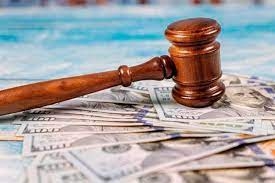The UK-based Privy Council on Thursday ruled that Jamaica’s anti-money laundering law compelling attorneys to report instances of financial crimes in dealing with their clients “does not contravene constitutional rights”.
The case had been brought by the attorney general and the General Legal Council of Jamaica to determine whether the regime was illegal.
In 2013, Jamaica extended its anti-money laundering regime to include attorneys carrying out certain activities, such as purchasing and selling businesses or real estate or creating companies or trusts. This was in order to address national security concerns and comply with international standards in respect of the prevention of money laundering and terrorist financing.
The extended regime gave the General Legal Council, as the regulator of the legal profession in Jamaica, certain powers to monitor compliance by attorneys with the anti-money laundering regime. This included carrying out inspections, examining and copying documents, and potentially sharing information with the other authorities. It also extended to attorneys the requirement to disclose suspicious transactions to the Financial Investigations Division of the Ministry of Finance and Planning.
The Jamaica Bar Association, which represents attorneys, brought a challenge to the extended regime on the basis that it is unconstitutional on a number of grounds. This challenge was resisted by the attorney general of Jamaica and the General Legal Council.
A three-judge panel of the Supreme Court of Judicature of Jamaica held that the relevant legislation was lawful and so dismissed the challenge. However, the Court of Appeal of Jamaica declared certain aspects of the regime invalid on the basis that they contravened the constitutional rights to privacy, liberty and freedom from search of property without demonstrable justification. The attorney general and the General Legal Council appealed to Judicial Committee of the Privy Council with the permission of the Court of Appeal. This appeal was heard in November last year.
In the judgment handed down Thursday the Privy Council said it had concluded “that the regime does not contravene constitutional rights and so will humbly advise His Majesty that the appeal should be allowed and the decision of the Constitutional Court of Jamaica upholding the relevant legislation should be restored”.
It further said while it was accepted by the parties and the courts below that the anti-money laundering regime involves some interference with attorney-client confidentiality because both the inspection powers of the General Legal Council and the obligation to report suspicious transactions would be likely to involve some disclosure by attorneys of their clients’ confidential information, it agrees with the Jamaican Supreme Court that the interference is demonstrably justified.
“There can be no doubt that combatting money laundering is of first importance to Jamaica. The extension of the regime to attorneys is rationally connected to that objective and is not arbitrary,” the Privy Council said.
It noted that “the inclusion of criminal sanctions, as opposed to a purely regulatory approach, is within the range of options open to Parliament” and added that “interference with attorney-client confidentiality is much less serious than any infringement of legal professional privilege would be and is justified by the importance to Jamaican society of preventing money laundering “.
It further said the requirement on attorneys to report suspicious transactions does not interfere with legal professional privilege.
“The legislation expressly provides that no reporting obligation arises in respect of information that comes to the attorney in circumstances that attract legal professional privilege. In addition, the prohibition against tipping-off does not apply to disclosure to or by an attorney for the purpose of obtaining or giving legal advice. There are therefore sufficient safeguards against mistaken disclosure as attorneys can seek advice from specialist attorneys if they are unsure whether to make a report,” the Privy Council stated.
In addition, it said, “the regime does not infringe the constitutional right to liberty”.
“Any interference with the right to liberty caused by punishment or threat of punishment of attorneys for failing to comply with the anti-money laundering regime would be demonstrably justifiable,” the Privy Council declared.
In further pointing out that “the regime does not infringe the constitutional right to protection from search of property”, it said “the power of the General Legal Council to conduct inspections does not confer a coercive power of search and seizure” as, “in the absence of a warrant or court order the General Legal Council would need an attorney’s consent to enter their office or take documents”.

